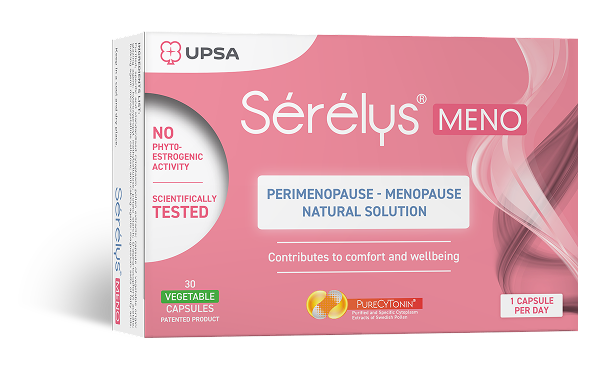
What is menopause and what are the symptoms?
Here’s how to identify menopause and what to do about the symptoms
We’ve all heard of the term menopause. We all know someone going through it, and we’ve probably also heard about some of the symptoms. Maybe you’re even going through it yourself. But what is menopause?
What is menopause?
Menopause is a natural part of life that marks the end of a woman's reproductive period. It’s characterised by the end of the menstrual cycle, caused by a halt in ovarian function and a drop in estrogen and progesterone levels. Clinically speaking, a woman is menopausal when she has not had a period for 12 consecutive months.
Even though it’s a natural part of hormonal transition, menopause can have a big impact on the day-to-day life of women, with lower hormone levels often causing physical symptoms and changes to mental health. However, menopause is different for everyone, you may experience all of these symptoms, just a couple, or none at all.
Before going through menopause, women go through a period of hormonal transition called perimenopause. During this perimenopausal phase, women experience strong hormonal variations with irregular cycles.
-
The average age of perimenopause is 47
This period can last up to 10 years, usually marked by changes in the normal patterns of a woman’s period, like periods becoming irregular, eventually stopping all together.
-
52 is the average age of a woman experiencing menopause
Symptoms of menopause can last for months or years and can change and evolve over time.
What happens next?
The ovaries produce 2 essential hormones: estrogen and progesterone.
During perimenopause, their production declines and fluctuates until they stop working altogether. Menstrual cycles become irregular, they may become either shorter or longer. Some months, there may be no menstrual cycles at all.
Hormonal fluctuations are what can cause problems and discomfort for women. Sometimes, estrogen levels rise sharply, leading to bloating and breast pain. At other times, estrogen levels may drop, leading to hot flushes or night sweats.
If you feel tired all the time or find yourself getting irritated very easily, these could be signs of perimenopause. By being informed, you can ensure you get the support you need and make this period as comfortable as possible.
Don’t forget, always ask your doctor for advice. They are the best source of information and support for anyone undergoing the symptoms of menopause or perimenopause.
There are 3 types of menopause:
-
Natural:
This occurs at around age 52 and is a natural part of ageing.
-
Premature:
This is when menopause occurs before the age of 40 and is linked to genetic predispositions like autoimmune diseases and chromosomal abnormalities.
-
Artificial:
Also known as surgical menopause, this is when menopause is triggered by drug treatment, hormone therapy, chemotherapy or surgery. This is often the case for those undergoing breast cancer treatment.

What are the symptoms of menopause?
Everyone can experience different symptoms when going through menopause, however some are more common, making it easier to identify when this may be happening to you.
The 5 most common signs of menopause
-
Hot flushes
-
Irritability
-
Insomnia
-
Fatigue
-
Night sweats
Three-quarters of the women experiencing menopause see their quality of life impacted, particularly by hot flushes, fatigue, and irritability.
Other menopause symptoms
-
Muscle and joint discomfort
-
Heart palpitations
-
Loss of libido
-
Urinary problems
-
Vaginal dryness
 After consulting your doctor, they will have plenty of suggestions to help you ease the symptoms of menopause. This will probably include suggesting hormone replacement therapy, more commonly known as HRT. While this can be a great option for some women going through menopause, others are unable or unwilling to take hormones.
After consulting your doctor, they will have plenty of suggestions to help you ease the symptoms of menopause. This will probably include suggesting hormone replacement therapy, more commonly known as HRT. While this can be a great option for some women going through menopause, others are unable or unwilling to take hormones.
Fortunately, there are other options for women who don’t want to take HRT. We have developed an effective solution to be used as a non-hormonal alternative for women experiencing menopause. This is Sérélys® Meno. This product is a safe alternative for women undergoing menopause who can't or don't want to take HRT.
The PureCyTonin® contained in Sérélys ® Meno contributes to improved wellbeing during perimenopause and menopause. Scientifically proven, this supplement is design to reduce the severity and frequency of hot flushes and help women feel less tired* Lachowsky M. et al., Evaluation of the quality and tolerance of Serelys ® in women during perimenopause and menopause. Genesis, 2015. Volume 183, 10-13.
For optimal results, take Sérélys once a day, in the morning or evening.
Maximum efficacy is reached after two months. For lasting effects, continue taking Sérélys for as long as you feel the need.




